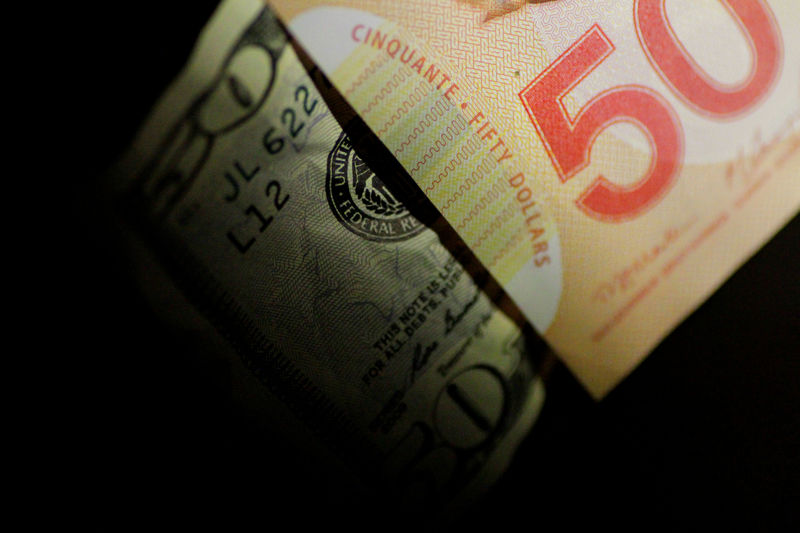By Fergal Smith
TORONTO (Reuters) - The Canadian dollar will edge higher against the greenback over the coming year, as a recovering domestic economy forestalls Bank of Canada interest rate cuts despite expected easing from the U.S. Federal Reserve, a Reuters poll predicted.
The loonie has climbed nearly 4% since May as evidence mounts that Canada's economy is recovering after a slowdown in late 2018 and early 2019.
Canada's unemployment rate dipped to a record low of 5.4% in May and two of the Bank of Canada's three measures of core inflation edged above the central bank's 2% target.
"You have got the Canadian economy that is doing well, with inflation on target, and the Bank of Canada is in no rush to make any policy adjustments," said Eric Theoret, a currency strategist at Scotiabank.
The central bank, which makes an interest rate decision next week, has signaled it would remain on the sidelines as it monitors economic developments.
In contrast, the Fed indicated in June it could cut interest rates as early as this month due to growing risks to the U.S. economy, especially related to the trade war between Washington and Beijing, and low inflation.
"For the Fed, there's maybe a bit more impetus to make some policy adjustments. So, just on that front alone, you've got reason for the Canadian dollar to strengthen," Theoret said.
After first dipping a little over 1% to 1.32 per U.S. dollar in three months, the poll of nearly 50 currency analysts expects the Canadian dollar to have risen 0.5% to 1.30 per U.S. dollar, or 76.92 U.S. cents, in 12 months from about 1.3060 on Thursday.
That is slightly stronger than the 1.31 projection in June's poll.
The loonie has climbed well over 4% since the start of 2019, the best performance among G10 currencies. Still, Canada exports many commodities, including oil, so its economy could be hurt by global trade frictions.
"There may be some disappointment in store in the trade negotiations between China and the United States, not to mention the possibility that the Trump Administration may again threaten to hit Mexico with tariffs," said Hendrix Vachon, a senior economist at Desjardins.
The United States in June dropped plans to impose tariffs on Mexican goods. Investors had worried the tariffs would lessen the effectiveness of a new North American trade deal. Canada sends about 75% of its exports to the United States.

"Likely bouts of uncertainty" could boost the U.S. dollar - seen as a safe-haven currency - periodically against most other currencies, including the loonie, Vachon said.